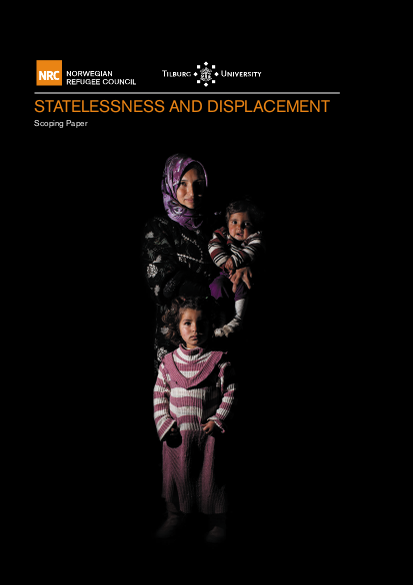
In Lebanon where over one million Syrian refugees have escaped the conflict, it is estimated that 36,000 children born to Syrian parents are at risk of becoming stateless. There are many reasons why children born in displacement are finding themselves unable to claim their right to a nationality. These vary from discriminatory nationality laws that prevent women from transmitting their nationality to their children, to problems with registering new births or marriages in a foreign land.
Being stateless increases people’s vulnerability in displacement, posing additional challenges to meet humanitarian needs. This report underlines that it is important for the humanitarian community to understand the potential for statelessness among displaced populations and to be able to identify and assist those most at risk. At a minimum, measures to prevent new cases of statelessness should be incorporated into humanitarian responses. The humanitarian community should also make efforts to identify stateless persons in displacement, enhance their protection and assist them to find lasting solutions.
This scoping paper by the Norwegian Refugee Council (NRC) and Tilburg University discusses the links between statelessness and forced displacement. The report highlights how protecting the current and future status of displaced families must come hand in hand with the assurance that they retain their right to a nationality, endeavouring to remove the risk of statelessness as a consequence of displacement.